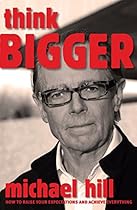 If you have been following the issues closely surrounding Auckland International Airport Ltd [AIA.NZX] and their purchase of a 24.99% stake in Queenstown Airport you will probably already know that a couple of significant pieces of news have been released on this matter over the last week or so.
If you have been following the issues closely surrounding Auckland International Airport Ltd [AIA.NZX] and their purchase of a 24.99% stake in Queenstown Airport you will probably already know that a couple of significant pieces of news have been released on this matter over the last week or so.Queenstown Lakes District Council (QLDC), through council owned subsidary Queenstown Airport Ltd, initially gave the green light for the deal last year and members on council are now opposing it and have completed a comprehensive 76 page report on it and have come to various conclusions as only a long winded ratepayer funded report can.
Their main point seems to be that Auckland Airport paid too much for their shareholding:
Page 41 of the report finds that the price paid by AIA for the first tranche shares (24.99%) was $6.91 per share:
The disclosure in this report that AIA has paid a significant premium to the present day value of the company surely runs counter to the council's opposition to the AIA/Queenstown ports arrangement? The Queenstown Airport and by default the council (which majority owns the airport) got good value for the 24.99% stake and for Queenstown ratepayers and they should be given a pat on the back for extracting every last cent out of AIA that they have. This clearly should bode well for AIA in court proceedings brought against AIA by QLDC/Queenstown Community Strategic Assets Group (QCSAG) and Air New Zealand Ltd [AIR.NZX].
There has also been an agreement by both Queenstown Airport and AIA that the option to by a further stake up to 35% is going to be given the bullet:
“On one hand Queenstown Airport could have received further cash of between $11 million and $21 million, of which the community could have received a sizable portion (around $10 million) as a dividend. On the other hand if Council ownership fell below 75% it would no longer have control of the constitution,” Ms Lawson said.
The latest developments pretty much put Queenstown Airport in the box seat as far as their partnership with AIA goes. They have a cornerstone shareholder that has allowed them to release much needed capital back onto the balance sheet and they can also use the expertise, management and size of Auckland Airport to leverage growth for the Queenstown Port.
Lets be clear though, it will be mutually beneficial for both partners but Queenstown Airport is in the box seat and will make its business decisions as it sees fit.
The High Court Judicial Review latter on this year on the port deal looks tenuous for the proponents.
Disc I own AIA shares in the Share Investor Portfolio
Queenstown Airport Buyout @ Share Investor
Auckland Airport CEO on Queenstown Airport Fracas
Queenstown Airport: Court Case looks set to Drag
Queenstown Airport: Loud Voices & Loyalty
Queenstown Airport: Air New Zealand's Crocodile Tears
Queenstown Airport: AIA purchase good Long-Term but will cost shareholders Short-Term
AIA @ Share Investor
Share Investor Q & A: Auckland Airport's Simon Moutter
Auckland Council look set for a Auckland Airport Takeover
Auckland City Council new AIA Policy Doc
Make me an offer I cant refuse: Auckland International Airport Ltd
Long Term View: Auckland International Airport
VIDEO - Simon Moutter on Australian Airport Purchase
Auckland Airport Capital Raising a fair call
Auckland International Airport lands Australian Ports
What Infratil sale of Auckland Airport stake means...
Is another Auckland Airport bid likely under a business friendly Government?
Latest Airport coverage
Cullen's move on Auckland Airport has far reaching effects
Cullen's move on AIA tax plan Anti-Business
AIA profit stays grounded
Softening opposition to CPPIB bid for AIA
Directors of AIA bribe brokers not to sell
What is Auckland Airport worth to you?
Second bite at AIA by CPPIB might just fly
AIA new directors must focus on shareholders
Auckland Airport merger deal nosedives
The Canadians have landed
AIA incentive scheme must fly out the window
Government market manipulation over AIA/DAE deal
DAE move on AIA: Will it fly?
Discuss this Stock @ Share Investor Forum - Register free
Download AIA Company Reports

THINK BIGGER: HOW TO RAISE YOUR EXPECTATIONS AND ACHIEVE EVERYTHING
BY MICHAEL HILL
c Share Investor 2011



